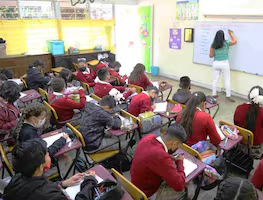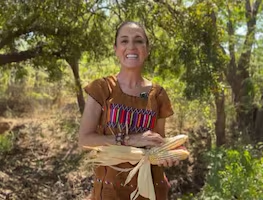Más Información
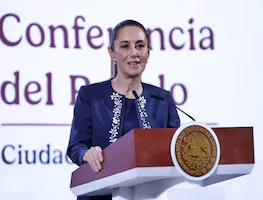
Claudia Sheinbaum, por definir asistencia presencial a reunión "urgente" de la Celac; migración, tema clave del encuentro

Noroña califica política de EU como hipócrita, racista y fascista; se solidariza con Petro ante deportaciones
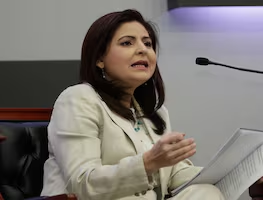
Magistrada Mónica Soto propone sustituir al Comité de Evaluación del PJ; plantea someter a insaculación a aspirantes elegibles
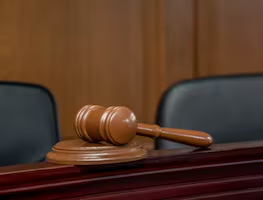
Magistrado Reyes Rodríguez propone validar registros de aspirantes con promedio inferior a 8; excluirlos es “estigmatizante”, señala

¿Eres madre trabajadora? Puedes acceder a las guarderías del IMSS; descubre los requisitos y cómo hacerlo
Special agents of the Federal Bureau of Investigation (FBI) and the Drug Enforcement Administration (DEA) asked Colombian authorities to provide them all the information they have on the movements and contacts of the Sinaloa cartel in the country.
They think that, at some point, the fugitive Mexican drug lord Joaquín "El Chapo" Guzmán will use those contacts to wriggle out of the 10,000 men looking for him in Mexico and the authorities of 199 countries worldwide after him since he escaped the Altiplano prison in the State of Mexico eight days ago.
According to information of the Narcotics Police, the Army and the Intelligence Directorate of Criminal Investigation and Interpol (Dijin) of Colombia obtained by El Tiempo, Ismael "El Mayo" Zambada, second in command of the Sinaloa Cartel and partner of El Chapo, is in charge of the business in Colombia.
Through two emissaries of Mexican nationality, Jairo Ortiz and Montiel, the Sinaloa cartel controls 35% of the cocaine market in Colombia, representing about 100 tons of drug a year.
"They move between Cali, Medellín, Cúcuta and Bogotá. Through the Valley, they introduce thousands of meth pills or 'pink coke'. The business was run by Julio César Paz Varela, alias J1, killed in 2014. But now it is controlled by the criminal gang Los Urabeños or Los Úsuga," an official of the Anti-Narcotics Police explained.
Los Úsuga, headed by Dairo Antonio Úsuga David, alias Otoniel, provide military support to Mexicans when they are in Colombia, apart from being their hosts and partners.
"The contact with Los Úsuga is a coffee businessman that we are about to prosecute. He is responsible for coordinating the contacts and shipments to Europe and Asia, in equal shares with the Sinaloa cartel," the Anti-Narcotics police added.
The shipments to these continents usually have the brands Lacoste, Apple and Made in Colombia.
Two leaders of the FARC are the other major partners of El Chapo's associates, specifically Darío Díaz Lee Robledo, head of the Frente 48, which operates in Putumayo, and Daniel Aldana, whose area of influence is Nariño and Cauca.
"The FARC uses a group called "La Constru" to collect the Sinaloa cartel's money and launder it," a military intelligence officer said.
Yoyo and Don C are the new heads of La Empresa, a criminal structure that runs part of the Buenaventura port.
The FARC, Los Úsuga andLa Empresa are key in the Sinaloa cartel's strategy to take eight ports in the Pacific, all the way from Mexico to Peru.
According to an intelligence document "they control 50% of the drug moved through Tumaco, Buenaventura and Urabá."
Almost all the drugs coming out of Colombia arrive in Puerto Quetzal, Guatemala with the help of another key contact: the Colombian citizen José Berley Guarín Loaiza, better known as "El Ilustre", who coordinates the speedboats that depart from Colombia and deliver cocaine to fishing vessels with foreign flags chartered by the Sinaloa cartel. The boats can fit up to 600 kilos of cocaine.
Tom and Carlos Arturo Arredondo Ortiz, alias Mateo, the new leaders of the Oficina de Envigado, complete the list of the Sinaloa cartel partners. El Tiempo revealed that in September 2014 there was a summit between leaders and "El Tatuado", another emissary of the Mexicans. The man handed weapons and money to keep part of the Bajo Cauca market.
This is the cocaine moved by the Sinaloa cartel through Venezuela using the routes of Víctor Ramón Navarro, alias Megateo, a drug trafficker of the Catatumbo area that charges a fee to Mexicans.
This year the Dijin has seized more than 22 tons of drugs, a record that confirms the increase in shipments, especially to Costa Rica, Guatemala and El Salvador, where the Sinaloa cartel has networks that receive the shipments and send them to Mexico and the United States.
According to a report from the Dijin the Mexicans pay US$40,000 to Daniel Aldana of the FARC for every boat that leaves his territory.
Noticias según tus intereses

Los invitados mexicanos de Trump | El Universal

Estilo familiar: hermano de AMLO acusa “complot” | El Universal

David Faitelson le responde a Álvaro Morales; "No vengan con indirectas estúpidas de que voy a terminar en la cárcel"

David Faitelson aseguró que "hay más libertad en Televisa que en TV Azteca"; reveló amenazas que sufrió en ESPN

Cruz Azul defiende a Iván Alonso; rechaza acuerdo con Porto por Martín Anselmi




